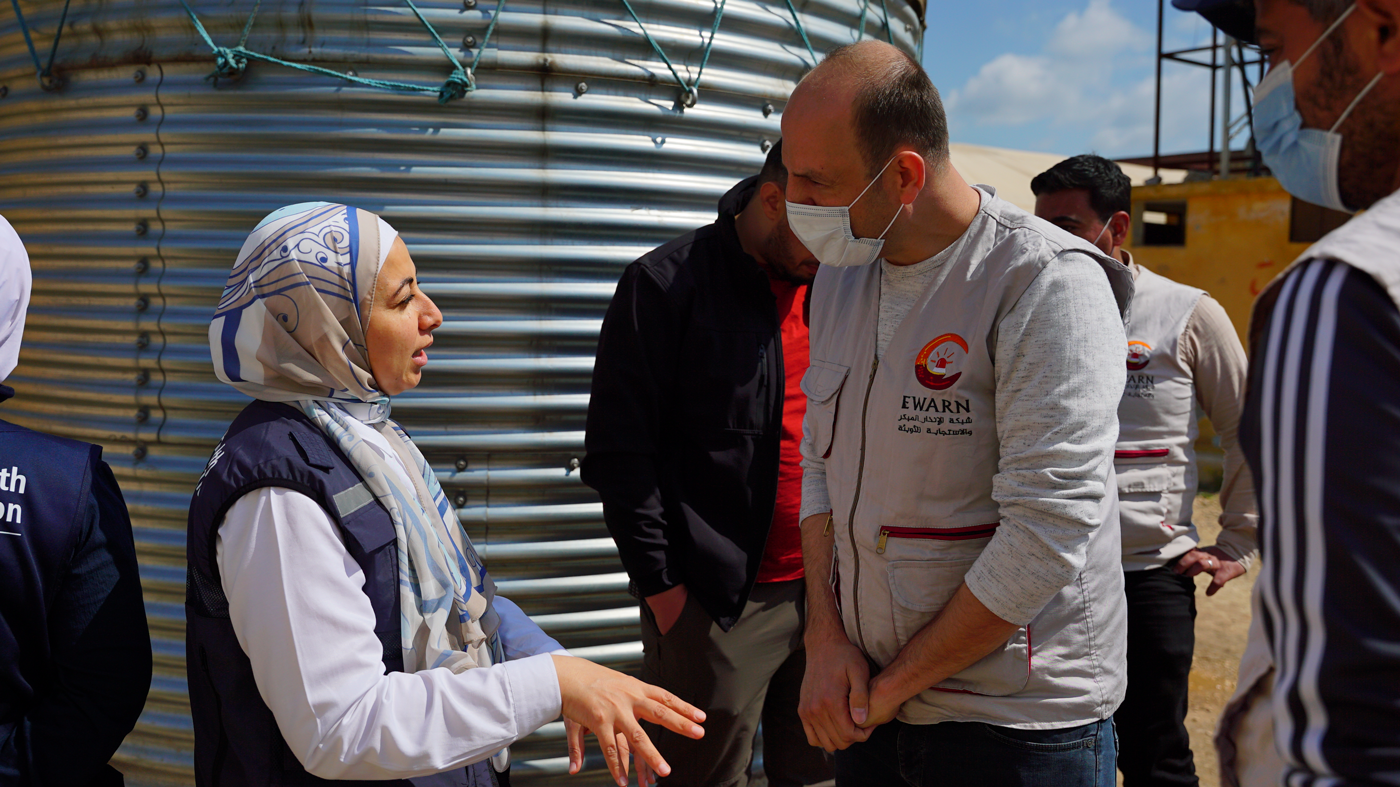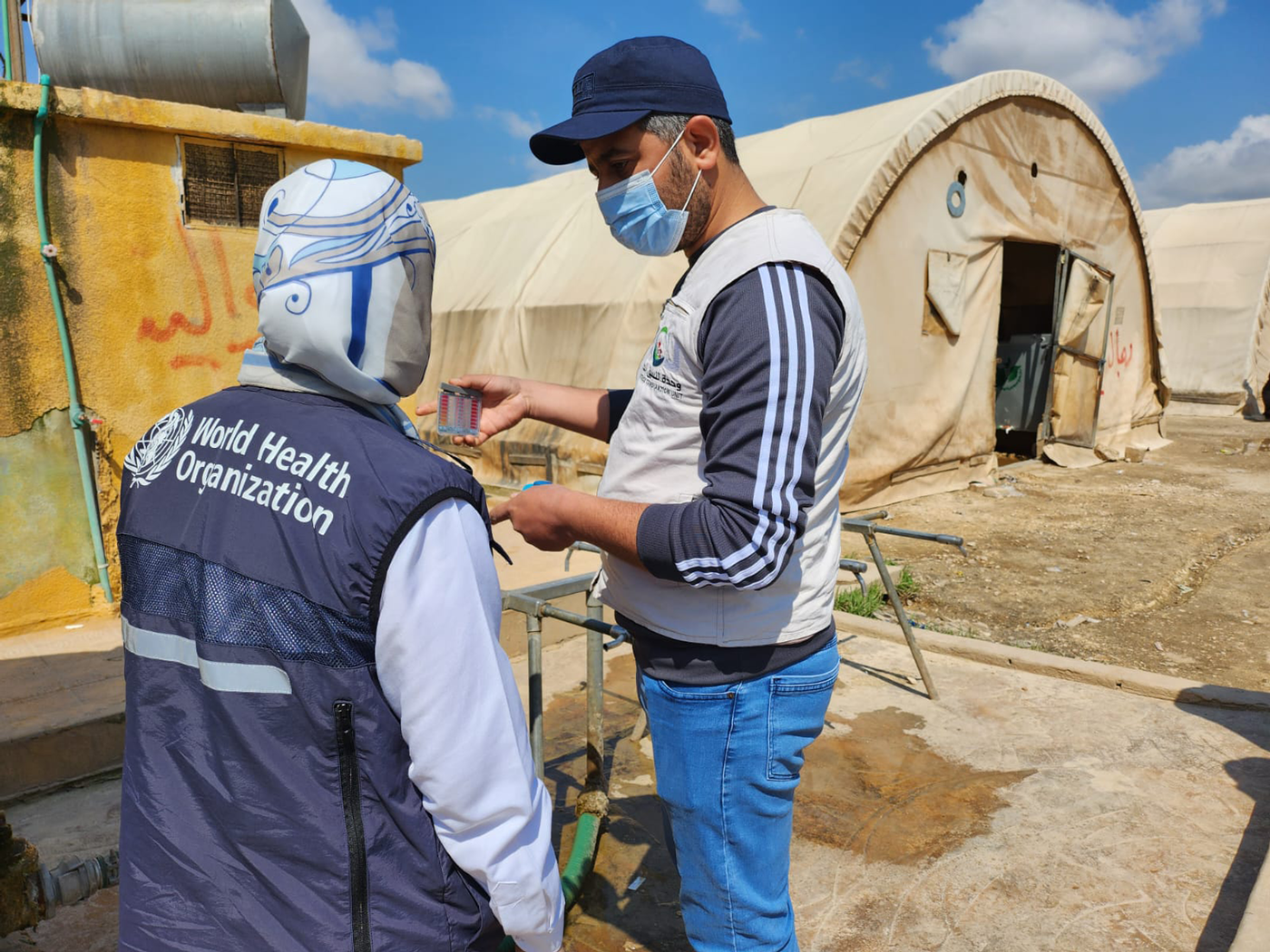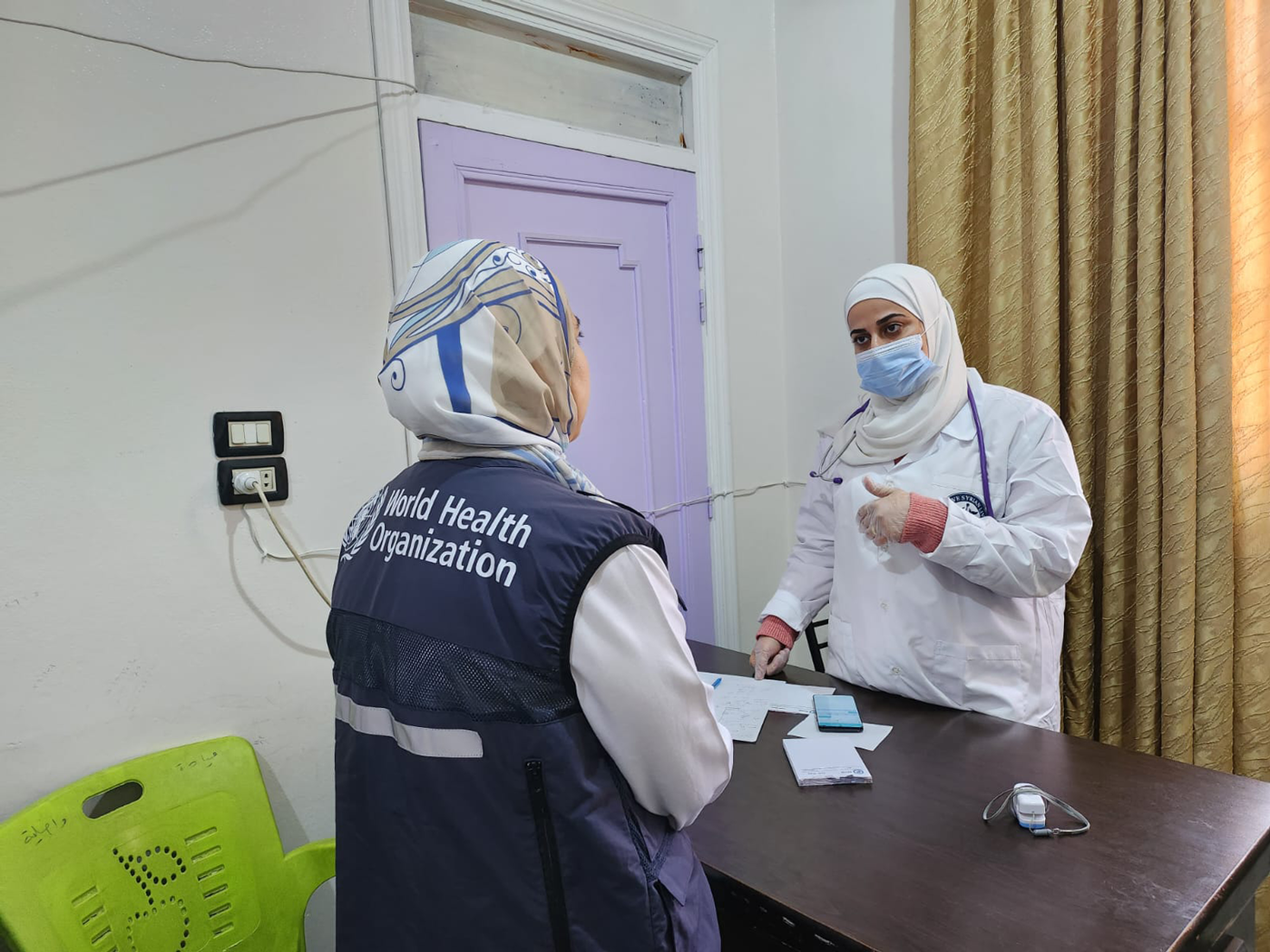 WHO staff member and EWARN counterpart assessing the functionality of the network in Maaret Tamsrin district.
WHO staff member and EWARN counterpart assessing the functionality of the network in Maaret Tamsrin district.
Cairo, 20 April 2023 – The WHO Regional Office for the Eastern Mediterranean has undertaken a surge mission to support the emergency response in north-west Syria in the aftermath of the devastating earthquakes and close to 1300 aftershocks that struck south-east Türkiye and north-west Syria in February 2023.
During the 1-month mission, various activities were conducted, including supporting the Gaziantep field office to respond to the increased risk of communicable disease outbreaks and epidemics following the earthquake.
The focus of the mission was to enhance the capacity of the early warning alert and response network (EWARN) and ensure rapid detection, verification and response to communicable diseases alerts and outbreaks. Gaps were identified and corrective actions implemented to strengthen outbreak preparedness and response.
Field visits
A field mission was conducted to Maaret Tamsrin, one of the areas impacted by the earthquake, to assess the functionality of EWARN at the local hospital and the integration of reception centres into the surveillance system as reporting sites to ensure the early detection of disease threats, alerts and outbreaks.
Two reception centres were also visited for water quality monitoring and the drinking water tested in coordination with the Water, Sanitation and Hygiene (WASH) division at the Assistance Coordination Unit, a Syrian nongovernmental organization. As a result, the team recommended water chlorination for the centres.
 WHO and WASH division staff members test drinking water at a reception centre.
WHO and WASH division staff members test drinking water at a reception centre.
Building capacities for rapid response
The mission members also helped build the capacity of the multisectoral rapid response teams (RRTs) in response activities for cholera and other epidemic-prone diseases. This included a two-day online RRT training course on how to establish an RRT at reception centres.
“RRTs are vital, as the members can rapidly investigate and respond to outbreaks and communicable diseases”, said Dr Sherein Elnossery of the Infectious Hazard Prevention unit at the WHO Regional Office, who was part of the mission and delivered the training.
More than 150 participants attended the training from surveillance, community health care, WASH and medical teams. It included sessions on outbreak response, community engagement and WASH. To strengthen capacities, RRT field experience and lessons learned from previous outbreak responses were discussed. In addition, the psychological impact of a crisis on the community was addressed, and participants instructed on providing psychological first aid.
 A WHO staff member assesses the cholera referral system at Maaret Tamsrin hospital.
A WHO staff member assesses the cholera referral system at Maaret Tamsrin hospital.
Strengthening the cholera response
During the mission, the WHO team worked to strengthen the coordination and leadership of the response to cholera and other epidemic-prone diseases. They also supervised the implementation of an oral cholera vaccination campaign targeting 1.7 million people in Dana and Harim subdistricts.
Additionally, the team assessed the risk for cholera outbreak expansion and, accordingly, 10 subdistricts in north-west Syria with a target population of 1.12 million people have been identified for oral cholera vaccine campaigns. This includes Jandairis, Afrin, Al Bab and Atareb in Aleppo governorate and Salqin, Armanaz, Janudiyeh and Badama in Idleb governorate. Reception centres will be included in the campaigns.
Dr Elnossery says that “WHO will continue to support the affected areas in north-west Syria to recover from the earthquake”.
Related links
WHO calls on global community to stand by Syria at Brussels donor conference
WHO and UNICEF launch cholera vaccination campaign in northwest Syria amidst earthquake response




